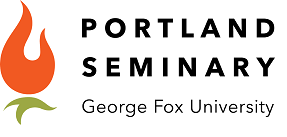Document Type
Dissertation
Publication Date
6-2018
Abstract
No sustained examination and diagnosis of problems inherent to the relationship of Evangelicalism with capitalism currently exists. Where assessments of the relationship have been undertaken, they are often built upon a lack of understanding of Evangelicalism, and an uncritical reliance both on Max Weber’s Protestant Work Ethic and on David Bebbington’s Quadrilateral of Evangelical priorities. This then gives rise to misunderstandings and faulty prescriptions for the future of Evangelicalism. This thesis seeks to remedy this situation by providing a robust diagnostic, not to refute Evangelicalism, but as a reparative. This reparative attends to the faulty responses of either over-dichotomising capitalist markets against ecclesial life, or the further capitulation of ecclesial life to the deforming forces of capitalism. It also allows for an alternative proposal for the future of Evangelicalism.
To achieve this, the thesis makes use of some methodological innovations and proposals, and also extends them. First, the thesis proposes and deploys its own 'map-making’ method as a kind of heuristic concept map to trace correspondence between church acts and beliefs. This 'map-making' ensures that the thesis provides evaluation and resourcing for deployment to current and related Evangelical contexts. Second, the thesis proposes that, contrary to methodological worries by others, it is possible to talk about and make an account of the two broad domains of Evangelicalism and capitalism. Third, in order to provide a reading of ecclesial life, the main accounts for this thesis draw upon and deploy the ‘binocular dialectic’ and method of Martyn Percy, by reading theology with social science. This ‘binocular' method establishes the thesis in two parts. Part one is an account of Evangelicalism and capitalism constructed from social science sources; part two follows with theological explication of this account.
Chapter one establishes the research problem, method and research design. Following chapter two’s review and modulation of Bebbington’s quadrilateral, chapters three and four make an account and reading from social science, drawing upon both with an ‘ideal type account’ with Max Weber, and a ‘materialist account’ with Karl Polanyi. Here, Evangelicalism is revealed to be both a creature of and response to capitalism, where Evangelical anxieties around assurance migrated into anxieties about providence. Where Evangelicals initially used the disciplined ascetics of the market for identity and relationships, these market ascetics ultimately deformed and replaced Christian social imaginaries, with market imaginations around Providence. Chapter five constructs a theological reading of the ascetics of that account, using Neo-Augustinian sources, in particular Vincent Miller, Daniel Bell and William Cavanaugh. From this, the thesis problematises capitalist markets as rival schools of desire to ecclesial life, not as a dichotomy, but rather as modes of resistance, resonance and co-creation. Drawing on the work of Graham Ward and James K. A Smith, chapter 6 shows how the ascetics of com-modification leverage the nature of human agency around imaginations for Providence. This results in weakened resistance to, and further co-option to, the deforming forces of capitalism by Evangelicalism. The thesis reveals that producing more effective worship curricula is insufficient to the task of resisting the deforming forces of capitalism.
Ultimately the thesis functions as a 'minority report' proposing that Evangelicalism, armed with the findings from this thesis, is uniquely situated to respond to the problems it has caused. Understanding how Evangelicalism has lost its resistance to the deforming forces of capitalism, and in some ways perfected those forces, is the beginning of understanding how it might then respond constructively to the problems it has caused, and with its own internal resources.
Recommended Citation
Clark, Jason Paul, "Evangelicalism and Capitalism: A Reparative Account and Diagnosis of Pathogeneses in the Relationship" (2018). Faculty Publications - Portland Seminary. 132.
https://digitalcommons.georgefox.edu/gfes/132

